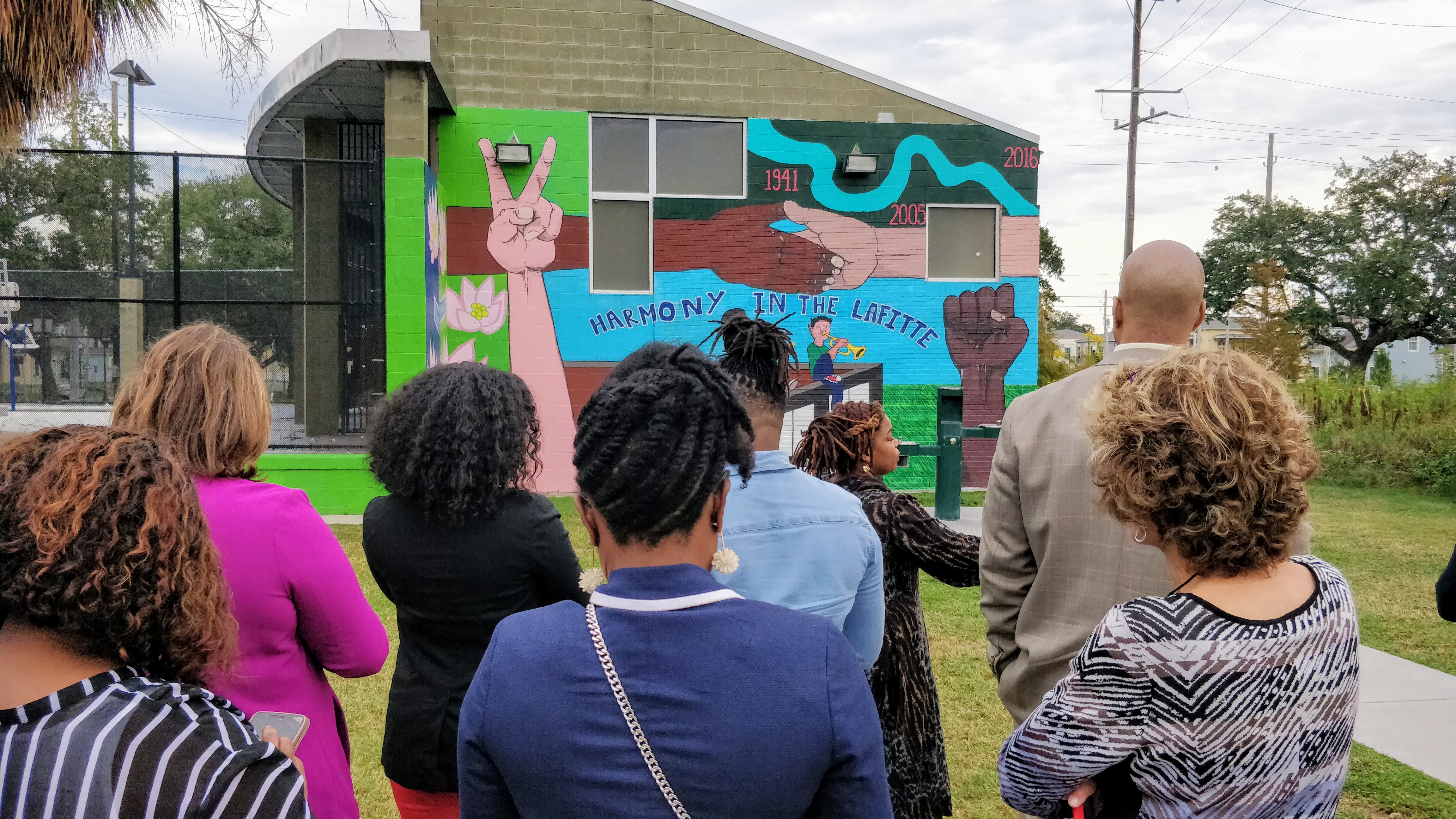Advancing Economic Inclusion in Southern Cities: New Orleans

Photo by Chris Schildt
Asali DeVan Ecclesiastes, Director of Strategic Neighborhood Development at the New Orleans Business Alliance, gave participants a tour of the Lafitte Greenway.
Six cities from around the South gathered in New Orleans on October 22-24 for the ninth convening of the Southern Cities Economic Inclusion initiative, hosted by the Annie E. Casey Foundation. City staff and community leaders from Asheville, Atlanta, Charlotte, Memphis, New Orleans, and Richmond met to strategize on how to create thriving, local economies grounded in racial equity – just and fair inclusion into society so that all can participate, prosper, and reach their full potential.
Participants drew inspiration from the host city, New Orleans. A walking tour took participants to the Lafitte Greenway and the Claiborne Corridor Cultural Innovation District, which is bringing entrepreneurs, murals, and cultural events together to revitalize a historically African American business district that was devastated by the construction of an elevated highway, I-10. The New Orleans Business Alliance – established as a public-private partnership to accelerate inclusive economic development in the city – shared their work to advance “Culture Equity Prosperity” through business supports and equitable economic development.
But challenges remain. Housing costs have risen dramatically in many low-income neighborhoods in New Orleans, driven by outside investment that many fear will be exasperated by the new federal Opportunity Zones tax incentive. At the same time, middle-class African American neighborhoods in New Orleans East struggle to attract investment in neighborhood-serving businesses. In response to these challenges, the city has passed stronger equitable development tools, such as a mandatory affordable housing inclusionary policy, and stronger clawback provisions when goals are not met.
A central theme of the convening was the need for equity leadership across city government, from frontline staff who provide vital services every day, to the Mayor and department leaders who must define success in terms of equity outcomes. To help institutionalize equity in city government, the group workshopped developing a new assessment tool that would allow cities to determine how well they are advancing economic inclusion strategies, including small business supports, equitable procurement and contracting, collecting data, and building new partnerships.